When I became the main presenter on GMTV in January 1997 I felt like the luckiest woman alive. There was no way you could do that job without being totally alert. Every morning there was news breaking, directions being barked down my earpiece, guests going missing and all sorts of chaos, but I just had to keep on smiling and make it all look entirely effortless. I loved it.
It did mean getting up at 3.30am though, and by the start of 2007 I’d been doing those pre-dawn starts for a decade. Our son Nat was still just eight, his brother Mackenzie five.
For the entire time, I had been combining my role as a TV presenter with caring for my parents as best I could. My mother had Alzheimer’s and until her death the previous year aged just 66 I’d looked after her every weekend. Not long afterwards we discovered my father had also fallen victim to the disease.
I was running on empty. By then I was working three days a week on the show and packed my other days with work too. On top of my weekly newspaper column, I was also presenting a radio show, another TV programme and various one-off documentaries that came my way. Whenever work was offered, I felt a huge pressure to say ‘Yes’.
I was very aware of how TV bosses think – I needed them to know other shows were interested in me so they wouldn’t think I was a washed up old has-been.
So I piled more and more pressure – and work – on myself. Then I’d dash home to pick the boys up from school, give them some tea and help with their homework before falling into bed and doing it all over again the next day.
I never just sat down and relaxed or watched TV. Maybe I’d become a bit manic. I could be dead on my feet with exhaustion but still fretting that I needed to knock up a moussaka because there were two aubergines in the fridge that needed using up.
Martin and I had the most horrendous rows. They’d blow up over something ridiculous like why couldn’t he empty the dishwasher, then spiral up from there.
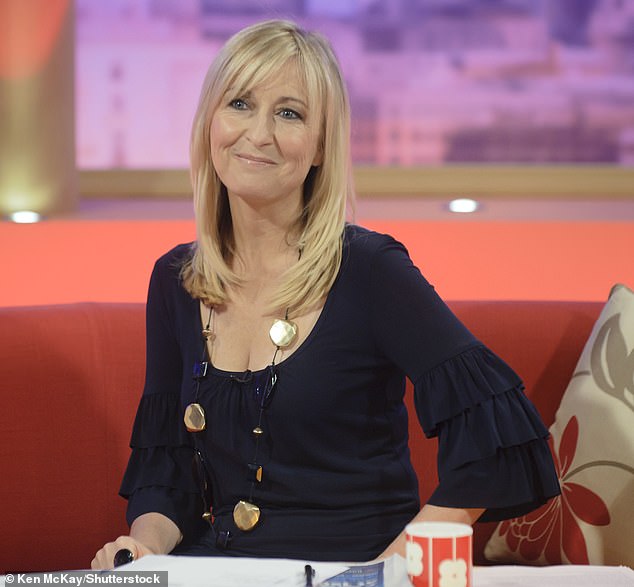
Fiona Phillips became the main presenter on GMTV in January 1997 and ‘felt like the luckiest woman alive’
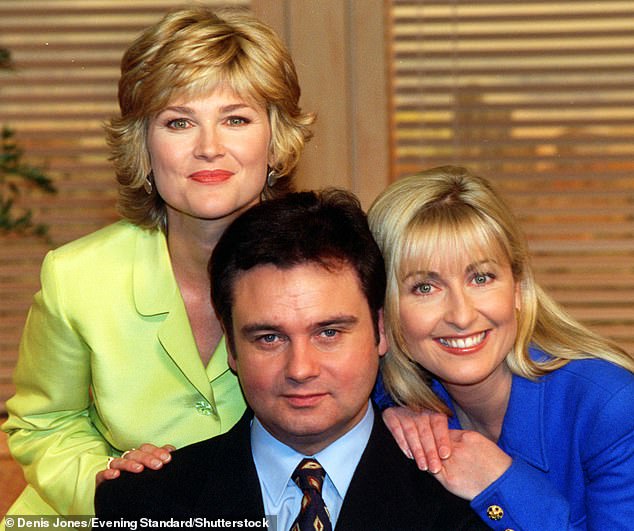
Fiona with fellow GMTV presenters Anthea Turner (left) and Eamonn Holmes (centre)
‘I need more help around the place, Martin!’ I’d yell. ‘You expect me to do everything.’
And then he’d come back at me: ‘Well, what do you want me to do? Give up my job?’
‘No, I just feel like it all comes down to me.’
‘Well, let’s get a live-in nanny then!’ he’d yell.
‘I don’t want a live-in nanny taking over my house!’ I’d shout back.
I was caught up in so many conflicting emotions – I knew the job was destroying me but it also gave me security and purpose.
I knew I wasn’t giving the boys the attention they needed but I didn’t want to pay someone else to do that when I’d been brought up to believe that was my job.
And I loved Martin and our family, so why couldn’t I just stop yelling at everyone?
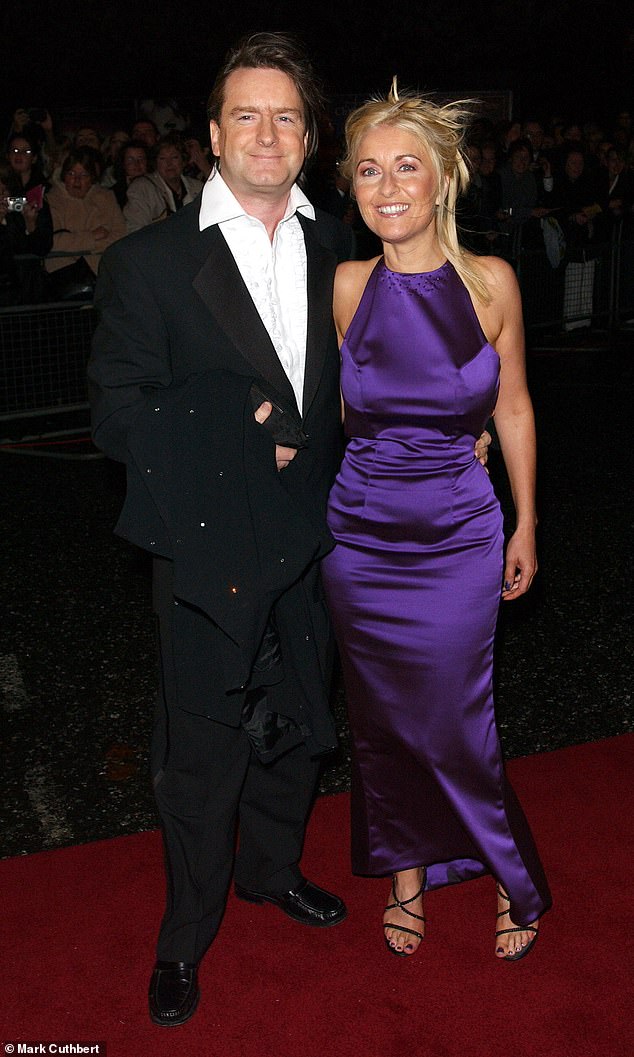
Fiona and her husband Martin Frizell at the National Television Awards in 2002
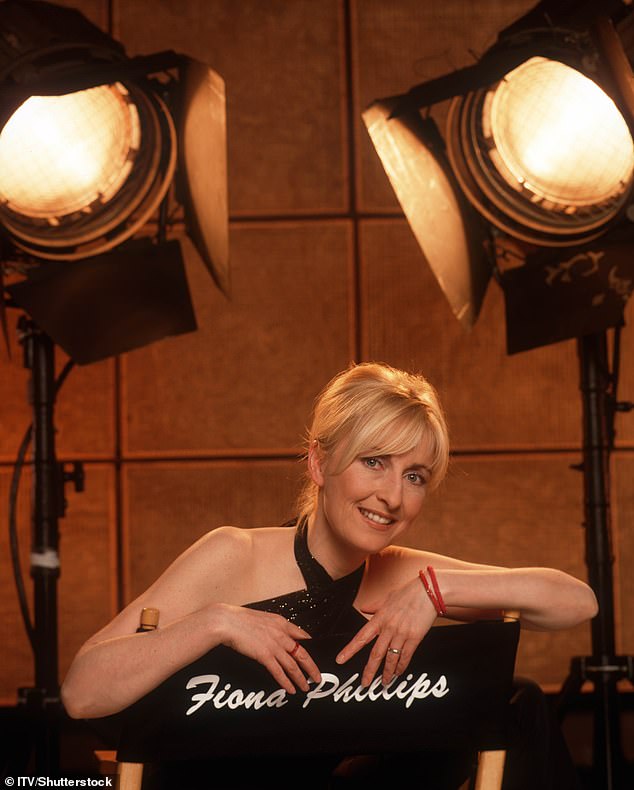
Fiona admits she was ‘running on empty’ during her time as a GMTV presenter
I think I was probably depressed too – I could cry at the merest things and often I’d be crying when we had guests telling emotional stories at work.
Then I’d go back to my dressing room and cry some more, because I just felt so disconnected from my life.
So in summer 2008, when I got wind that senior management wanted to shake up the show – and I wasn’t part of their plans for what shook back down – I’d lost my energy to fight it. I agreed a deal and left in December, almost 12 years after I’d first sat on that famous red sofa.
MARTIN
Soon after her mum’s death in 2006, Fiona’s dad Phil was diagnosed with the same condition so a lot of her attention transferred to worrying about him and caring for him.
The rest of the time we were in that routine of life that most people have – working, looking after the kids and going out or seeing our friends whenever we had any energy left.
Then in 2008 Fiona left GMTV. Television can be a brutal world and things keep changing. If a new boss comes in and wants to shake up the format then that’s what happens – there’s not really much a presenter can do about that.
It was a massive knock to her pride and confidence. Fiona really doesn’t have a big ego, unlike so many people in the world of TV, but it was still a jolt.
During that time she spent a lot of time with her dad. She went down to see him every weekend and also during the week when she could. When Phil passed away, that was incredibly hard for her.
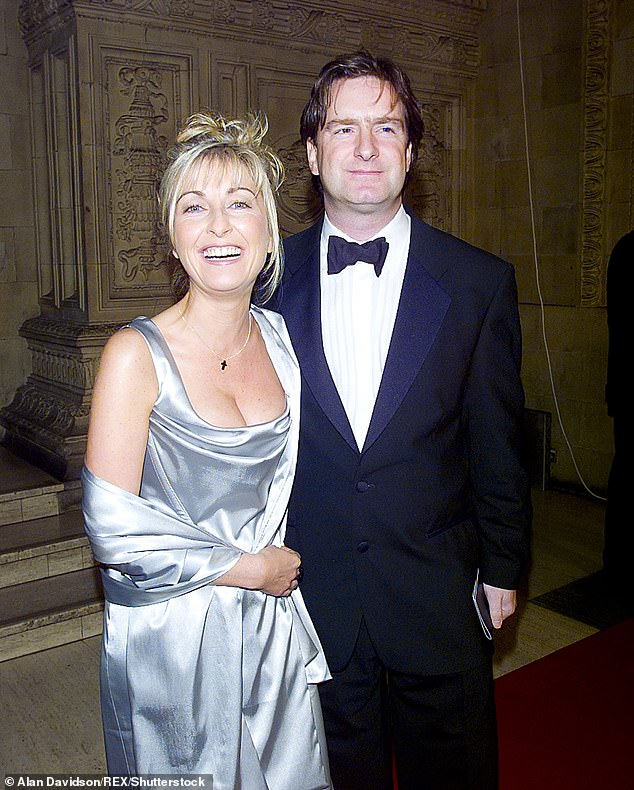
The couple attend the National Television Awards ceremony together in 1998
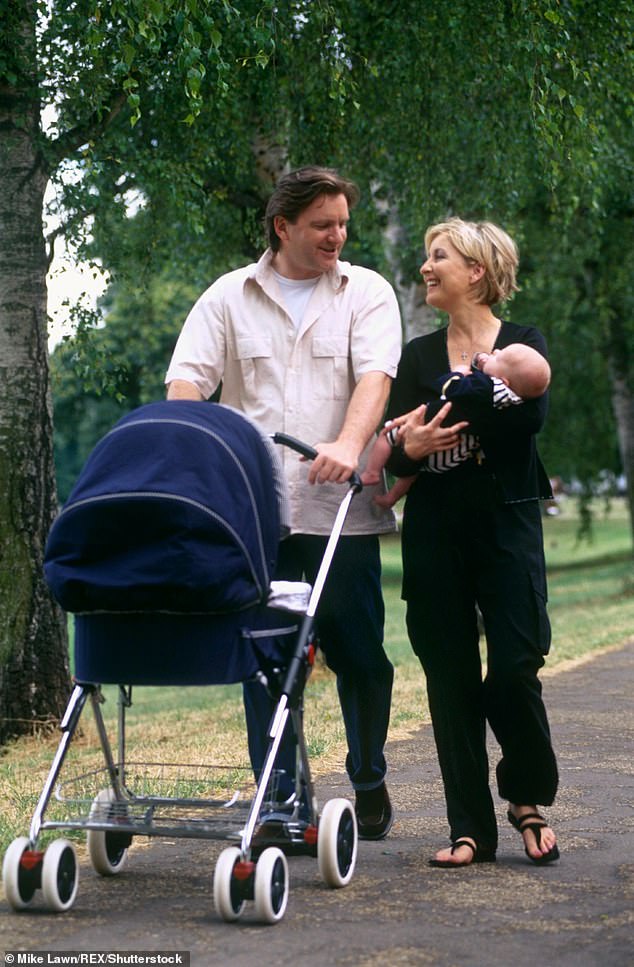
New parents: Fiona and Martin walk through a park with a pram and their new child in 1999
FIONA
Martin had been promoted to Editor of GMTV in 2000, but in 2010 ITV bought the breakfast show franchise which meant he and all the people he’d been working with lost their jobs. It came as a massive shock to him.
After a couple of months of moping around he came up with the idea of using his redundancy money to buy a pub in Dorset, where a couple of years earlier we’d bought a little holiday home.
Soon we were the proud owners of The Greyhound Inn, a gastropub with a few rooms upstairs.
The plan was that at first Martin would commute a couple of times a week while I stayed in London with the boys. At first it worked really well. I would often go down at weekends with the boys and we’d have great times.
But as the boys got older, with their own friends and activities, they were less enthusiastic about travelling to Dorset every weekend. I started to get fed up with it all a bit too. With Martin away most of the week it all just added to my sense that everything at home got left to me.
He sold the pub in 2014 – having lost every last penny of his redundancy payout – but then his career got back on track.
That year he took over at ITV’s Loose Women and, after a spell sorting that out, became Editor of This Morning with Phillip Schofield and Holly Willoughby the following year.
But my TV career didn’t recover in the same way. Bits and pieces of work came in but I never felt completely right.
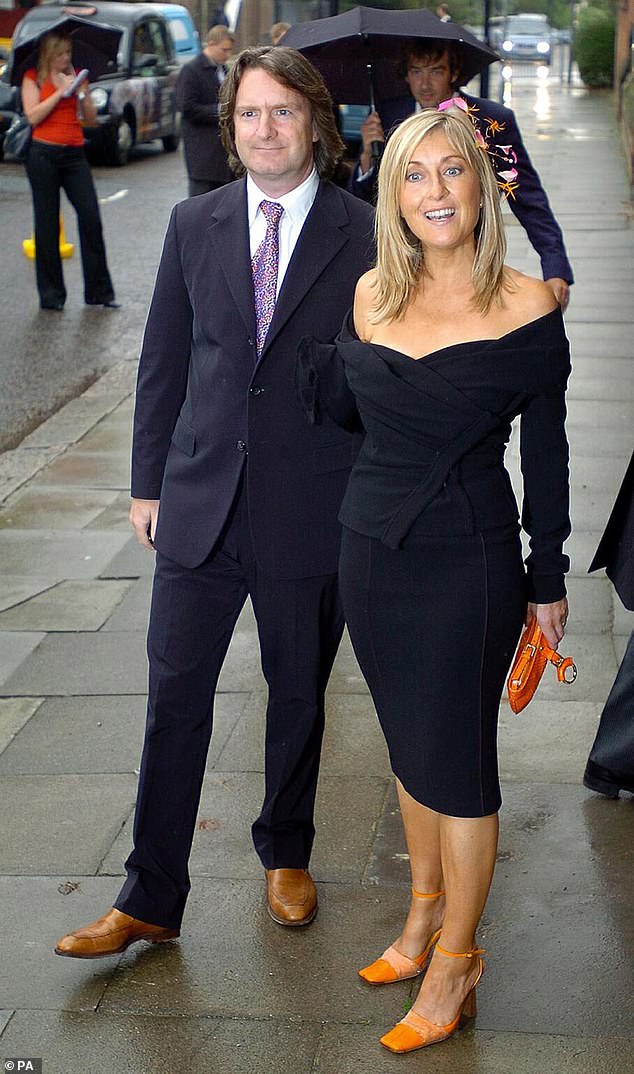
Fiona and Martin attend Kate Garraway’s wedding to Derek Draper in 2005
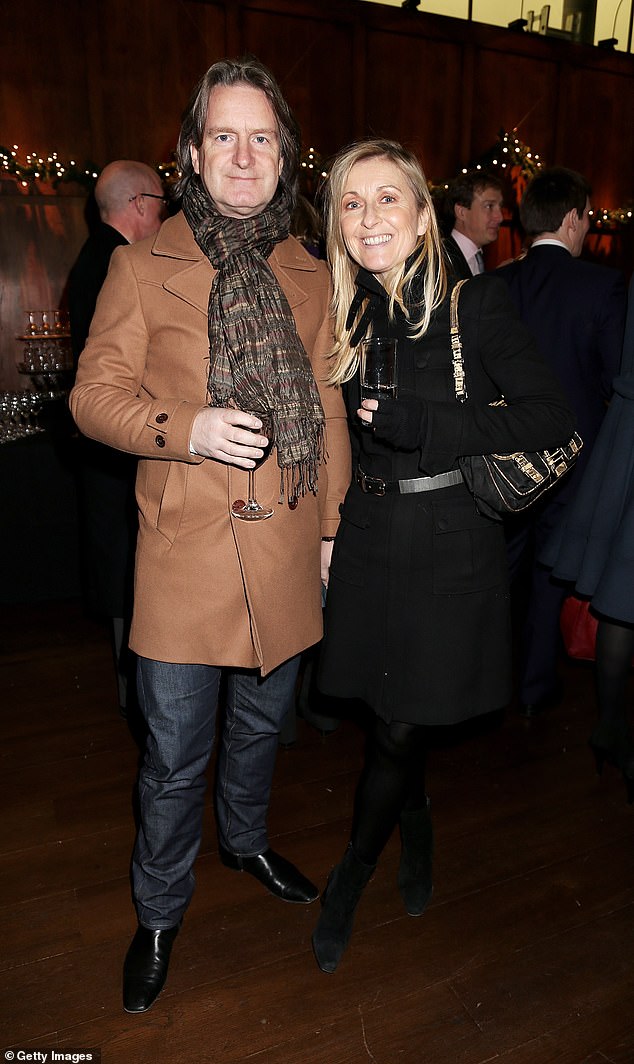
Fiona and Martin attend the Missing People Carol Service at St-Martin-In-The-Fields in 2012
Was I worried that there might be something sinister lurking beneath the surface? That Alzheimer’s could one day be coming for me too? On one level I did think I would get the disease, but there was also another part of me that was in a strange sort of denial about it all.
‘This illness has devastated so much of my life already, surely it’s not going to come for me too?’ I’d tell friends.
‘Lightning doesn’t strike twice. Well, even if it does, it definitely doesn’t strike three times.’
Was that wishful thinking? Maybe, but there were times when I truly believed it.
Meanwhile my marriage was coming under increasing strain.
I’m sure the disease was at least partly responsible, but at the time neither of us could see it. I just became more and more disconnected from Martin and the boys.
‘You’ve totally zoned out of our family and our marriage,’ he would say to me.
‘Don’t be so bloody ridiculous!’ I’d yell back.
But, if I’m honest, I think he was right. I just didn’t seem to have the energy for any of it any more.
I didn’t realise quite how seriously Martin felt about it all until one evening he announced he was moving out.
‘Stop being so ridiculous!’ I yelled. ‘I’m just worn out. I’m tired – of everything.’
‘That’s what you’ve been saying for years,’ he replied. ‘Maybe this – our marriage – is what’s making you so tired.’
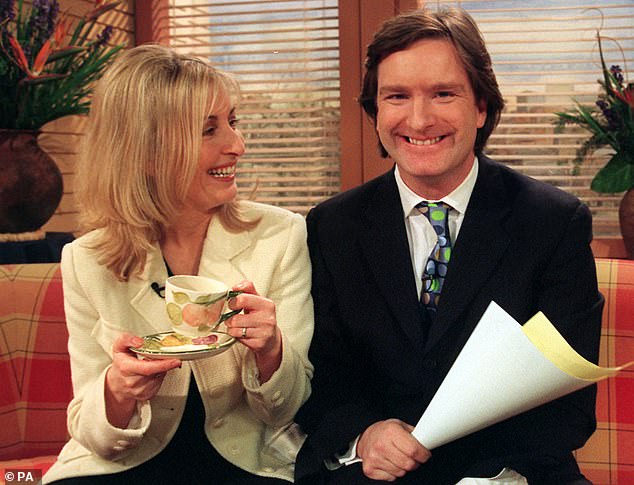
Fiona was joined on the sofa with a new co-host – Martin – when Eamonn Holmes took a long weekend break in 1998
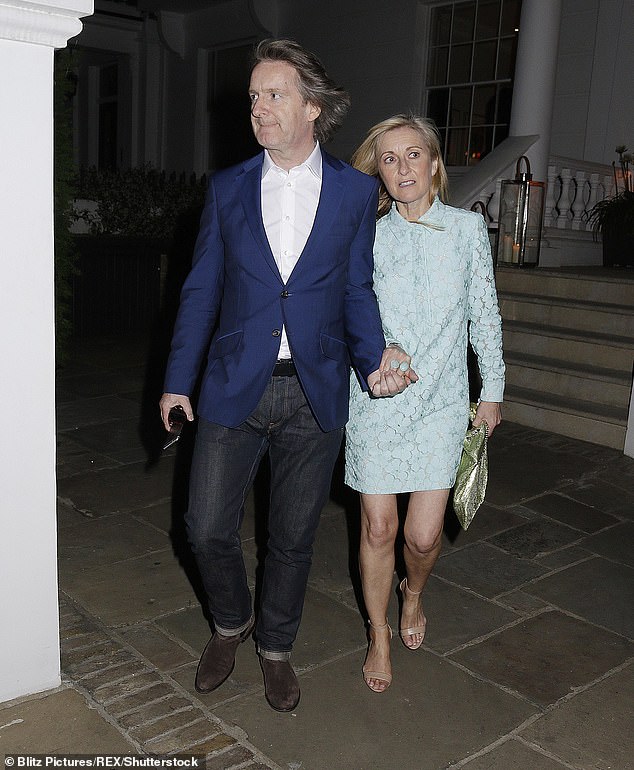
Martin and Fiona look glamorous as they attend ITV Summer Party in 2015
I didn’t think for one moment my relationship with him was what was behind me feeling so down about everything. It was something else that I had no means of controlling, but I couldn’t ever seem to explain that properly.
I don’t think I ever thought he would leave me completely. It felt much more like he was trying to shock me into behaving differently.
And it worked. Even though we had been distant for months and months, I missed Martin.
And if I thought about what a future might be like without him, it just seemed bewildering. A sort of nothingness.
I did spend time thinking about how I’d behaved towards him, not just in the past few months but over the years when I’d been so preoccupied with my parents and work. Not that I regretted that for a moment, but clearly it had taken its toll on our marriage.
By the third week of our separation, we had started texting each other and then we spoke on the phone. He wanted us to meet to talk everything through, so he booked a beautiful hotel in Hampshire for one Friday evening.
Driving down, I felt nervous in a way that I hadn’t for years. After three weeks, I desperately wanted my husband home. For all the arguments and the bickering and my moaning, I still loved him – I always had done.
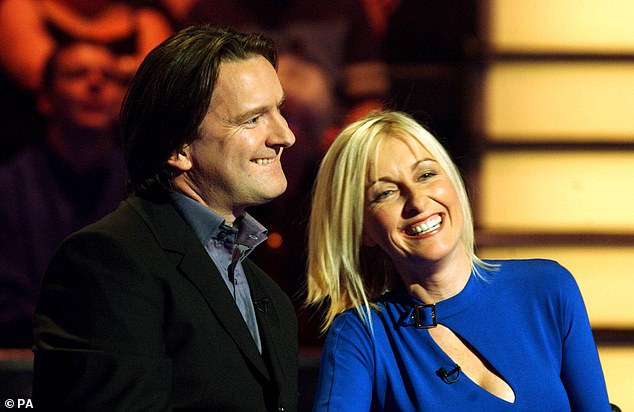
Martin and Fiona take part in a celebrity special of the TV game show ‘Who Wants To Be A Millionaire’
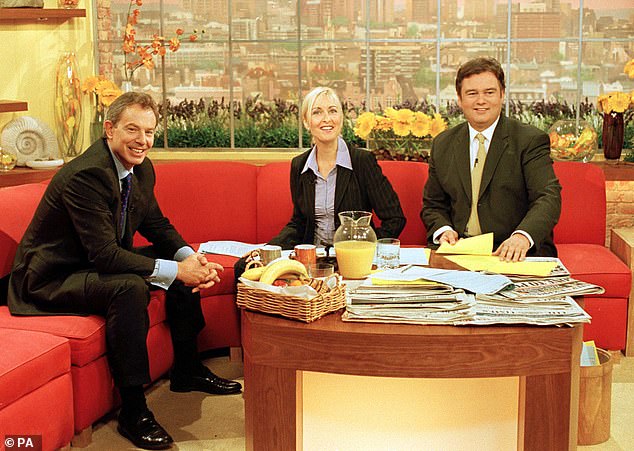
Then Prime Minister Tony Blair talking to Fiona and Eamonn Holmes on the ITV breakfast show in 2001
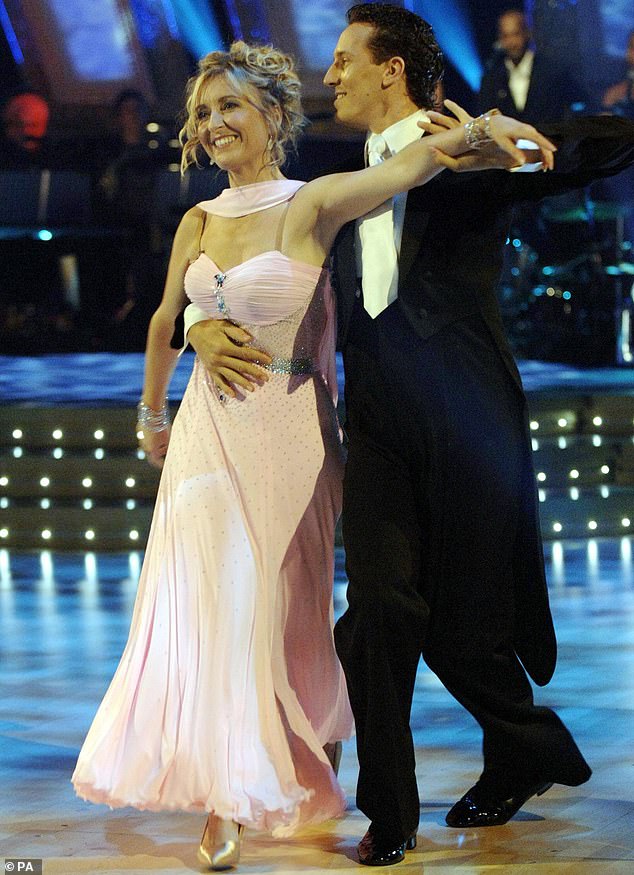
Fiona and her dance partner Brendon Cole performing on Strictly Come Dancing in 2005
I wanted him back, I wanted myself back. I just wasn’t sure whether I could do it.
That evening was difficult – but great.
‘You’ve been so distant for so long,’ he told me. ‘I just need to know – is this going to work or not?’
‘Well, I want it to work,’ I said.
‘And so do I,’ he said. ‘But things have got to change.’
And I knew he was right. The only problem was I didn’t know how to change things.
In 2020 I decided that, having caught Covid earlier that year, I was now suffering from Long Covid. Or was I using that as another excuse to the world for why my behaviour had changed?
I just don’t know.
Around then I also lost my confidence around driving. I’d been driving since I passed my test at 17. For years I’d nipped round London in my little Mini and then I did epic trips back and forth to my mum in Wales with two little kids in the back.
But now just the thought of driving through the streets near our home made my palms sweat and I felt sick. The roads were all so busy – and what if I forgot which pedal to press or which street to go down? Even popping to the shops, which I’d done a million times before, became terrifying.
The anxiety attacks became more frequent until they were almost hourly.
Around this time lots of women in the public eye, such as Davina McCall and Gabby Logan, were discussing the menopause in a way it had never previously been talked about. It felt like the pieces were falling into place – why hadn’t anyone told me before how debilitating the menopause could be?
But I didn’t have the hot flushes that a lot of women complain about. For me it was the sense of brain fog and a sense of anxiety that I could rarely shake off.
The simplest thing, like going to the bank to ask about my account, would send me into a total panic, and there were mood swings too, which meant even I was finding my behaviour unpredictable.
And yet, despite not wanting to be like that, I couldn’t do anything about it. I felt I’d lost control over my life.
During 2021, Dr Louise Newson had been appearing frequently on Martin’s show, This Morning. She had become known as the UK’s leading expert on menopause. Martin said that if the way I was feeling was down to menopause, then Dr Newson was the person to diagnose it.
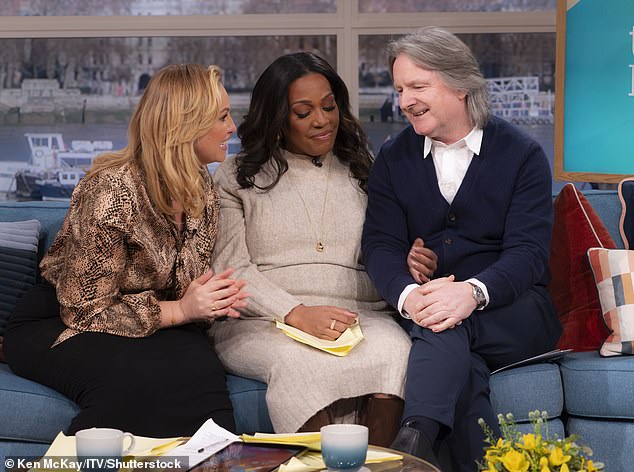
Mark stepped down as editor of ITV’s This Morning in February 2025 to take care of his wife amid her diagnosis (pictured on his last day with Josie Gibson and Alison Hammond)
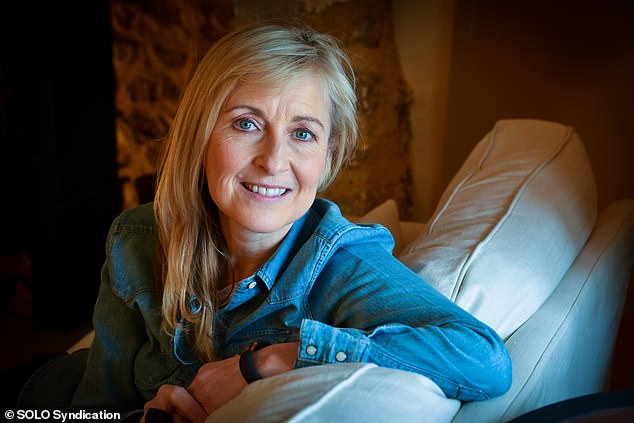
Before her diagnosis: A smiling Fiona poses for a picture at home at her Dorset Cottage in 2015
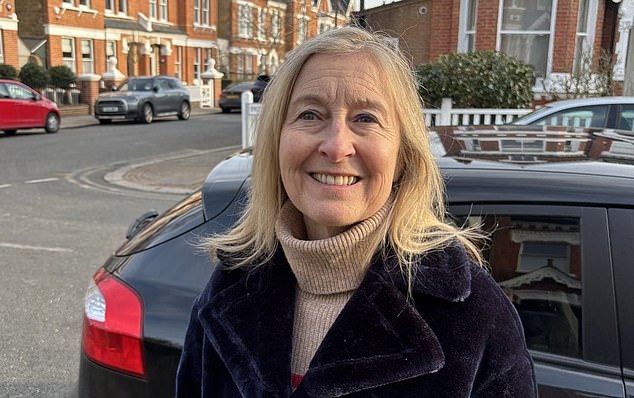
Fiona, seen for the first time in over a year in May to promote her new book, Remember When: My life with Alzheimer’s, amid her battle with the disease
MARTIN
By the start of 2022, I was pinning a lot of hope on Dr Newson. The previous 12 months had been incredibly difficult. It felt like Fiona was slipping further and further away from me, Nat and Mackenzie.
You’ll be wondering why, as bright, educated people, we didn’t think this might be the beginning – the start of Alzheimer’s stealth attack on Fiona’s mind.
I honestly don’t know. All I can say is, at the time, I really didn’t think so. Things weren’t great but life’s not always great, is it?
Dr Newson was lovely. She had a long chat with Fiona and took blood tests. She also put her on a course of hormone replacement therapy. If it was the menopause, then within a couple of months the brain fog and anxiety symptoms should start to ease.
But when Fiona’s condition failed to improve after a few months of the HRT treatment, I contacted
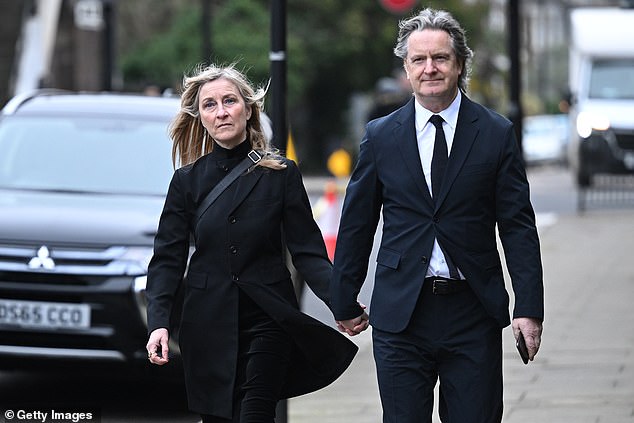
Struggle: Fiona and husband Martin pictured last year as they attended the funeral of Derek Draper
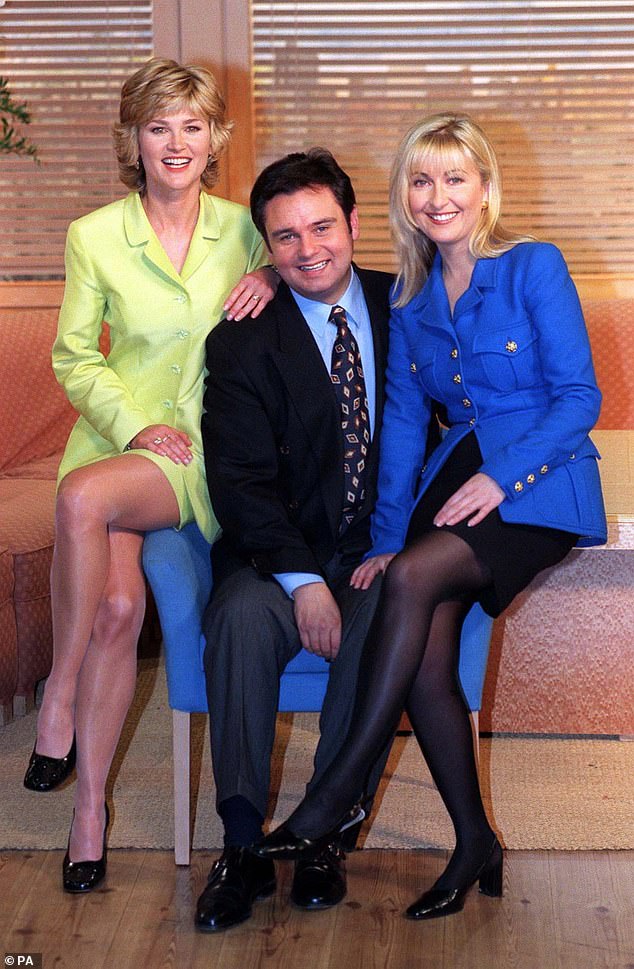
National spotlight: Fiona, right, with her fellow GMTV presenters Anthea Turner and Eamonn Holmes in 1996
Dr Newson and asked what we should do next.
The doctor read through Fiona’s notes again and then said the words I’d been hoping for so long never to hear: ‘Look, I think this may be something more than menopause and Fiona needs to be properly assessed.’
FIONA
For my first hospital appointment, the consultant, Professor Jonathan Rohrer, gave me a series of tests. He started with questions like, ‘Can you tell me what 86 minus 7 is?’, and then it would be 79 minus 7, then 72 minus 7 – all the way down.
Then he pointed to the clock and asked me the time. It all felt a bit humiliating and silly. But it also felt quite difficult.
Finally they produced a large piece of paper and pens and I had to draw two rectangles. Then I had to repeat the process, but this time the rectangles had to intersect.
Later, Martin told me that people with Alzheimer’s really struggle to make the rectangles intersect – it’s something to do with how the brain works that makes it particularly difficult.
I felt quite chuffed I’d managed it. Surely if my rectangles were OK, my brain must be OK too?
After the tests, I had an MRI. But the results were inconclusive, so I had to go back a few weeks later for a lumbar puncture – where they extract spinal fluid – which would, they said, give a definitive result.
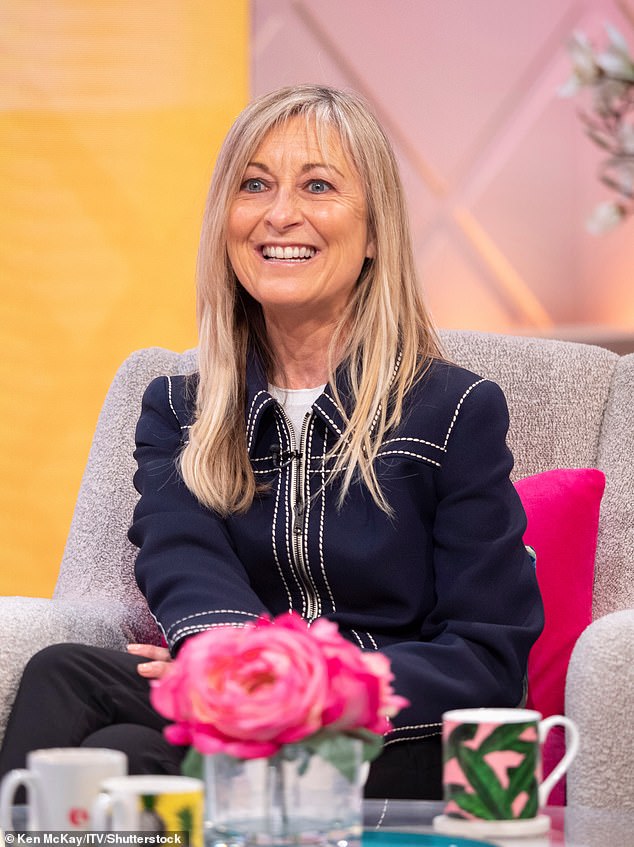
Fiona makes an appearance on Lorraine on June 6, 2018. At the time, she presented Shop Smart Save Money
Martin and I sat next to each other across the desk from the consultant. We made some small talk about the weather as I scanned the desk for any stray reports or letters that might give a glimpse of what was coming my way.
‘Yes, so your results are back,’ he said slowly. ‘And yes, I’m afraid to tell you that you do have early-onset Alzheimer’s disease.’
Martin and I stared at him.
Neither of us said a word. We sat rigid, locked in suspended animation between everything our lives had been before this moment and everything they would become beyond it.
I’d only turned 61 at the start of that year. And, while I suppose I had always thought I might get the disease one day, I’d hoped it might be when I was in my eighties or even nineties.
We stood on the pavement outside the hospital in complete and utter shock.
Then Martin said: ‘Right, well, shall we go and have a drink?’
‘Yes, let’s,’ I replied. ‘I think I need a drink.’
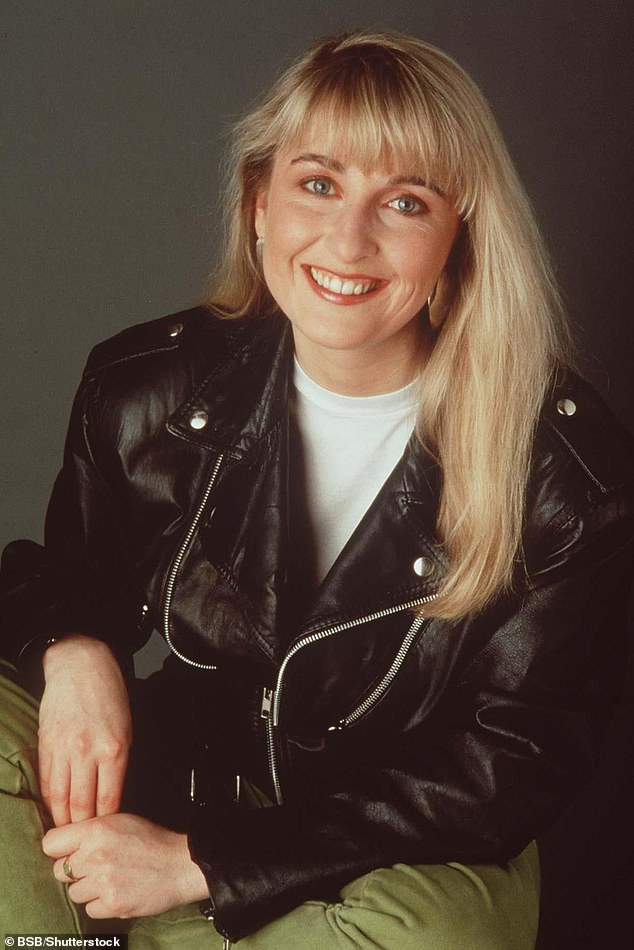
Fiona Phillips pictured in 1994 before she became a GMTV presenter
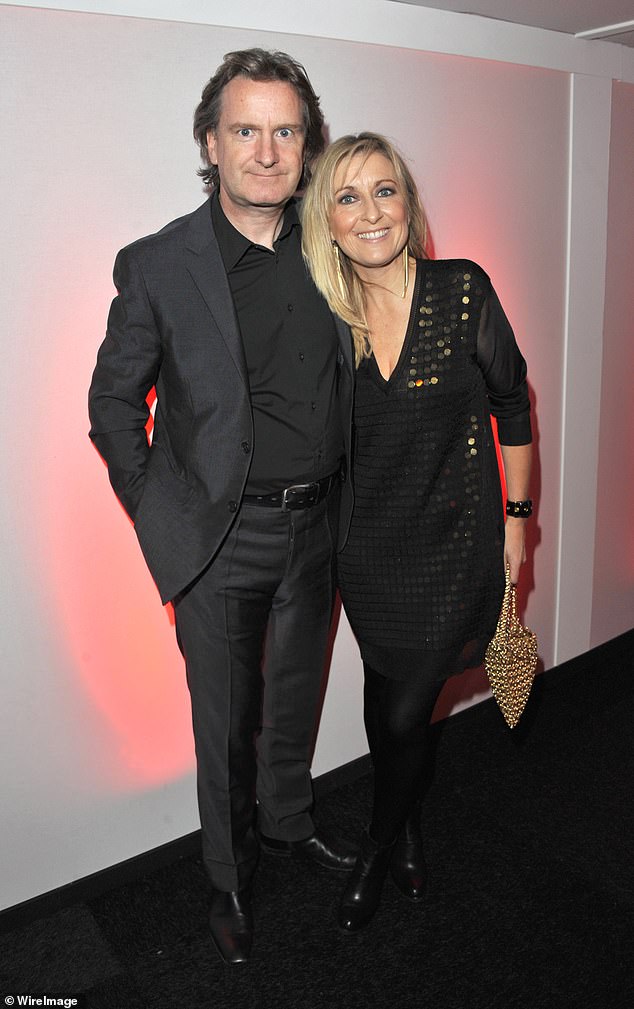
Martin Frizzell and wife Fiona Phillips attend the reception of 8Rocks party from Lawrence Dallaglio’s Foundation on November 12, 2010
We walked across the road to a little pub, both too shellshocked to speak much.
Martin went to the bar for two large glasses of wine while I sat at a table, fiddling with a bar mat while my life continued to shatter into a million shards of pain.
In those first few minutes after the devastating diagnosis, I was angry, too. Really f****** angry.
I know you’re not supposed to ask ‘Why me?’ – and I’ve never been a moaner – but seriously, this time,
‘Why me?’ What had I done so wrong to deserve this?
It’s not like I needed any more lessons in how awful this illness can be, I could write a whole book.
In fact, I had written the book ten years earlier. If it wasn’t so bloody awful, it would be funny.
Martin brought the drinks over. He was so pale, so utterly shocked.
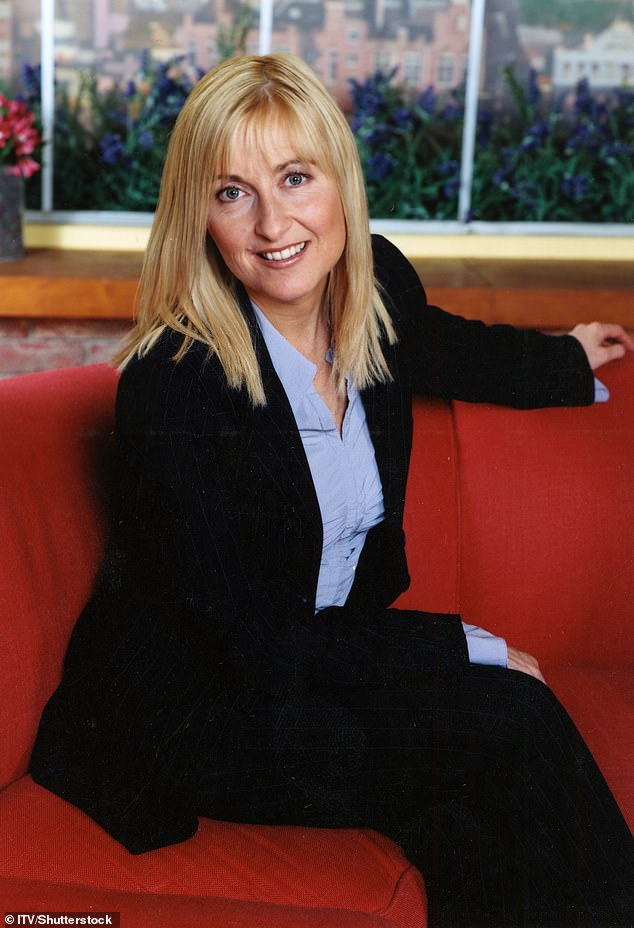
Both of Fiona’s parents died of Alzheimer’s. Her father was diagnosed just weeks after her mother passed away
‘What do we do now?’ I asked.
He probably hadn’t any more idea than me but, despite years and years of independence and not feeling I needed anyone to cope, I really needed to cling to him at that moment.
‘Well, the consultant told us to go home and live as ‘normally’ as we can,’ Martin said flatly.
‘How on earth do we live “normally”?’ I asked. ‘I’m not sure,’ he replied. ‘We’ll just have to give it a go and see what treatments we can find.
‘There must be something we can do. I’ll talk to some experts and see what they say.
‘There’s so much work going on in this field nowadays, it really has progressed enormously since your mum was ill.’
I knew Martin had flipped into journalist mode – this wasn’t the time to flap or fuss, we just had to get the job done. And I liked that. Because if anyone knew what to do in a crisis, it was Martin. I just felt floored. Like I’d taken one enormous sucker punch to my gut and I was never getting up. As for going home to live as ‘normally as possible’, nothing would ever be normal again.
And yet as we sat there in that pub, it was entirely normal. The lovely landlady collected glasses and wiped tables, some office workers came in and had two pints of Guinness, the TV in the corner was showing the news. It felt like everything for everyone was just carrying on the same. Everyone except me.
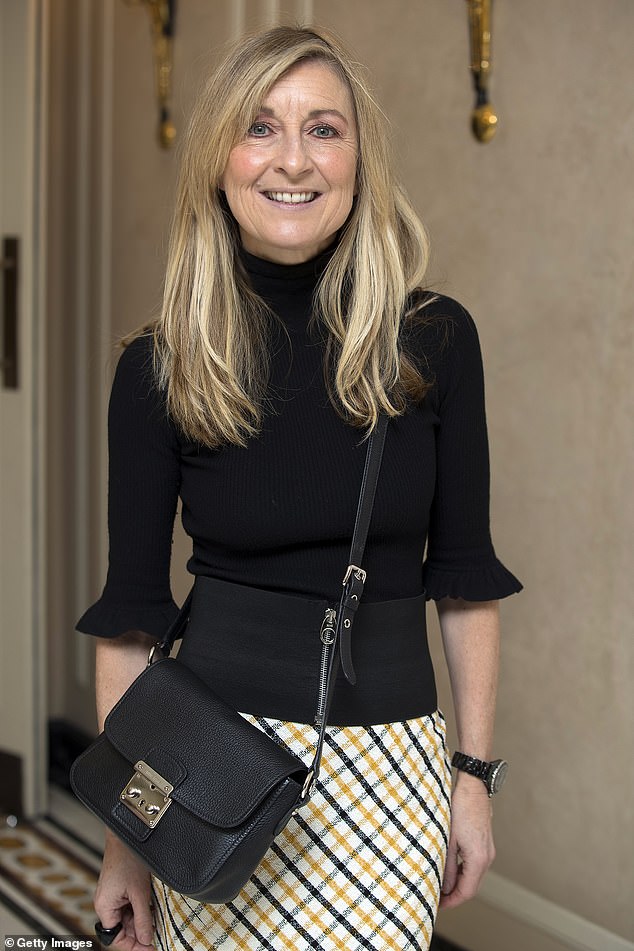
The much-loved broadcaster was 61 when she discovered she had early-onset Alzheimer’s disease
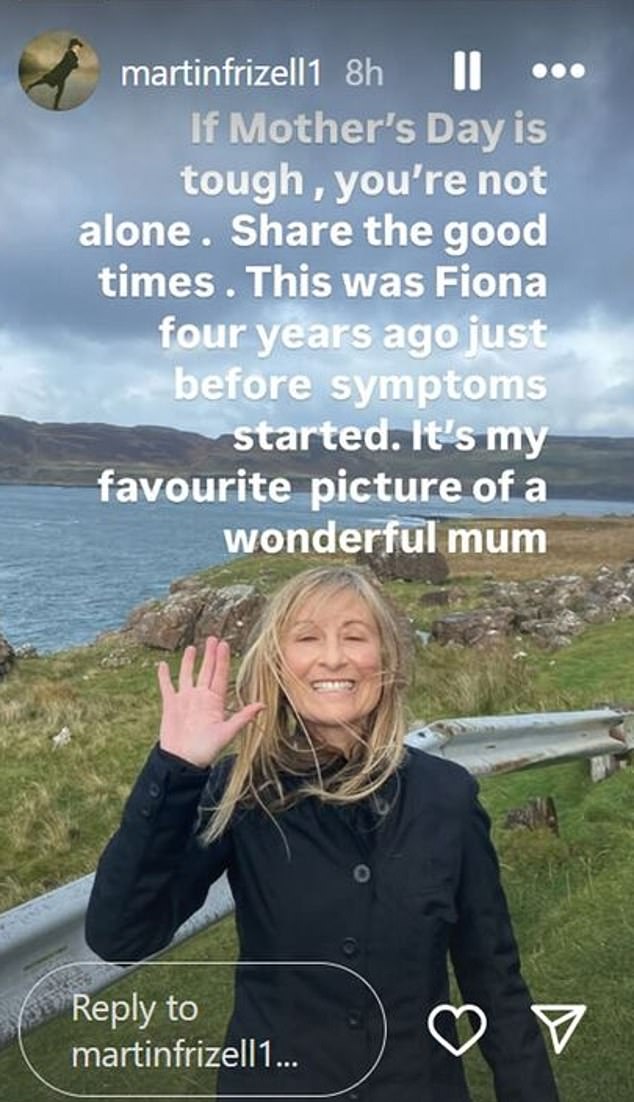
Martin shared a photo of Fiona from four years ago before she discovered that she had early on-set Alzheimer’s disease on Mother’s Day in a heartbreaking post
The next morning Martin got up to go to work, just as he always did. I got up and made a coffee, then went for a walk, just as I always did. What else could we do? Lie on the floor, weeping and wailing? That wasn’t going to change anything.
I was determined to keep the diagnosis a tight secret. I hated the thought of becoming an object of gossip or even pity.
I could imagine in the world of TV some of those people I used to work with saying, ‘Oh, have you heard about poor Fiona? What a tragedy!’
I’d worked so hard to be independent and judged on my merits, so the thought of people patronising me like that was too awful.
That afternoon in the pub it had seemed extraordinary that we could continue to live life ‘as normally as possible’, but that’s exactly what we did from that moment on.
We drove down the road we had driven down a million times before, opened the door to the home where we had brought up our boys, then sat in the front room and watched TV.
Nat was away in the Army, Mackenzie was out with his mates. Everything was normal. But, then, what was our alternative?
There was no Plan B.
This was my life now.
- Adapted from Remember When: My Life With Alzheimer’s, by Fiona Phillips (Macmillan, £22), to be published on July 17.
© Fiona Phillips, 2025. To order a copy for £18.70 (offer valid to 31/08/25; UK p&p free on orders over £25) go to mailshop.co.uk/books or call 020 3176 2937.











